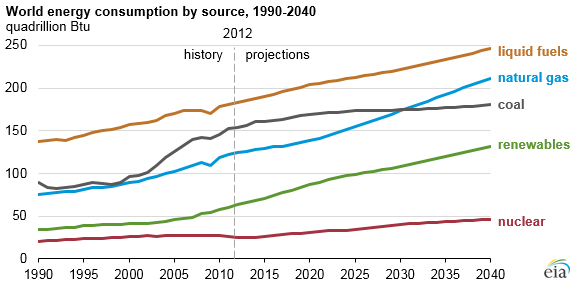That sounds like a terrific advancement for developing nations. We worry about water in other countries, we worry about food, we worry about education and culture. Every single one of those is resolved with affordable energy. Energy is the great equalizer and America's second most important strategic resource after, obviously, food.
There is a cost issue, energy is useless if people can't afford it, and the road map for improvement when energy is cheap is well-documented. Even the Tennessee Valley Authority, derided for being a big government energy land grab, worked once the free market became involved. Left-wing journalist Lorena Hickok visited the Tennessee Valley during June, 1934, and went to Tupelo Mississippi, the first city to buy its electric power directly from TVA, and she found a miracle of capitalism had grown up in the heart of the job works project. Six companies were suddenly in the electric equipment business and in the most recent 17 days, 137 refrigerators and 17 ranges had been sold.
With one basic need being met thanks to cheaper energy, and less time spent doing drudge work at home, people were able to look to solve other technology issues. Hickok spoke of a million acres of dry clay that couldn't even grow weeds, thanks to an agriculture mentality similar to organic farming today. Low-cost electricity made irrigation and cheap fertilizer possible. Within a decade the "table land" with "thin soil" Hickok described was green and productive once more.
We have our own version of a cheap energy renaissance happening without a government job works program, in the natural gas boom, and that may soon help developing countries, unless we decide to mandate winners and losers in our energy future. First, look at the usage projection.(1)

Source: U.S. Energy Information Administration, International Energy Outlook 2016
Who is going to lead in all this new energy consumption? Not Organization for Economic Cooperation and Development (OECD) countries, who spend a lot of time apologizing for their success. Instead, it will be India and China, who are exempt from climate treaties as "developing nations" despite their prominence on the world stage.
Well, why shouldn't they be? The most cloying thing about 20 years of climate meetings was this patronizing tone from environmentalists and scientists that pollution is a shared problem. It isn't a shared problem, and it is not right to tell people who are now using the free market and making money that they can't have air conditioners and cars because everyone in the offices of Sierra Club already has them and believe new ones elsewhere will do too much damage to the whole planet.
They should be allowed to buy whatever they like, but we certainly shouldn't ideologically subsidize them, as we have been doing. In 2014, President Obama negotiated a deal with China where they were exempt from any emissions controls while the U.S. had to cut 28 Percent...from 2005 Levels. This was hailed as a victory because prior to that China had not agreed to ever cap their emissions. How could anyone see that as a victory? We agreed to basically handicap the American economy while letting China grow unfettered and most in media acted like cheerleaders for what a terrific diplomatic breakthrough that somehow was.
Of course, we now know why mainstream media gave President Obama a free pass. They were so inexperienced they would call up his PR people to ask how they should be writing on issues. As White House insider Ben Rhodes phrased it, "The average reporter we talk to is 27 years old, and their only reporting experience consists of being around political campaigns. That’s a sea change. They literally know nothing."
And that was about something obvious, like not letting Iran have nuclear reactors. How can journalists be expected to understand something even scientists can't understand, like the climate? Controlling emissions requires turning lots of knobs smartly, not penalizing one energy solution so that another which has benefited from tens of billions of dollars in government subsidies can win by default - and getting naive journalists to parrot the official message.
It's a good thing the rest of the world is going to have more energy in the future. It is a bad thing we learned nothing from TVA, and we instead seem to be intent on making energy more expensive for poor people.
NOTE:
(1) The top lines of the consumption chart will remain fossil fuels but as history has shown, affordable energy will make it possible for science and technology to create new kinds of energy the future, in the same way TVA was not about fertilizer, it was a second-order benefit of spending less money on electricity. Without affordable energy now, there is no bridge to the future without subsidies. TVA, for example, carries about $27 billion in debt, which will never be paid back without natural gas and nuclear, both of which they are pursuing.




Comments